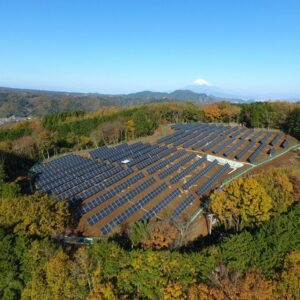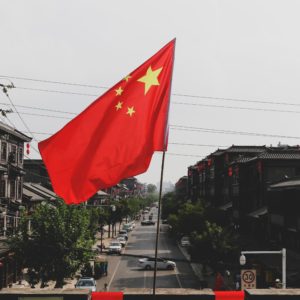"Cover crops are used in place of crops intended for sale or animal forage. Farmers most commonly use rye or winter wheat for cover. Instead of being bare and exposed to the elements and erosion, these fields resist erosion. As the crop grows and decomposes, its nutrients are absorbed by the soil. And according to the U.S. Department of Agriculture, the crops can dry out wet fields before planting and even increase future crop yields."
How Exxon Mobil’s CEO Views Energy Shortages and Increasing Profits
"A lot of focus had been put on wind, solar and electric vehicles, which all have an important role to play. They’re necessary, but certainly not sufficient. So what we’re beginning to see is a recognition that a much broader set of solutions is needed, and that a critical player in that space will be our industry. Carbon capture and storage, hydrogen and biofuels are all now being recognized for the important role they’re going to play in contributing to the solution."
California must invest in forest management or risk squandering CO2 reductions
Kenneth Schrupp outlines why California should invest in forest management in The Orange County Register. “If California is serious about improving the environment, the state’s top priority ought to be preventing mass wildfires that make breathing worse than smoking cigarettes and cause asthma in children — not magic trains that won’t be completed before the...
X-energy to go public via $2 billion blank-check deal
Reuters reports that X-energy will go public. “Climate awareness and investor interest in sustainable business practices have surged this year with money managers looking to factor in environmental social governance (ESG) policies as impact-investing gains momentum.” Read the full article here.
For Energy, America’s Best Foreign Policy Is a Good Domestic Policy
Brigham McCown writes in RealClearEnergy about the importance of domestic energy security. “Likewise, the fervency of the fossil-only crowd is equally misguided. The critical mistake policymakers on both ends of the spectrum have made is the folly of choosing one form over the over. The answer is not whether it is fossil fuels or renewables...
Long-duration energy storage has attracted more than $58B in global commitments since 2019: WoodMac
"Emerging LDES technologies face an 'ever-growing list' of technical, financial and business barriers to gain broader deployment, reduce costs and provide financial value against combined cycle gas turbines paired with carbon capture and storage, modular nuclear reactors or green hydrogen fueled power plants."
Energy giants, Bill Gates back effort to map ‘clean’ hydrogen
David Iaconangelo of E&E News reports on a new clean hydrogen working group. “The list of members in the initiative announced this morning include Gates’ Breakthrough Energy; investor-owned utilities such as National Grid PLC, Dominion Energy Inc. and Duke Energy Corp.; oil and gas producers such as EQT Corp., Shell PLC and Exxon Mobil Corp.;...
Congress Must Think Big on Competitive Energy Infrastructure
"Although the fixes may be technical, every American household and business can appreciate that efficient, competitive infrastructure is a backbone of the economy. Congress has the imperative to act accordingly."
Tesla Cofounder Aims To Rev Up U.S. EV Battery Market With $3.5 Billion South Carolina Plant
"Redwood has raised more than $1 billion from investors, including Ford, Fidelity, Bill Gates’ Breakthrough Energy Ventures and Amazon’s Climate Pledge Fund. It will be seeking additional funds to cover the $4.6 billion it is committing for both the South Carolina campus and its production facilities in Nevada, though Straubel declined to provide details about that effort."
Does China Really Pick Winners?
"China is a formidable economic competitor, but the key to its success is the energy and ingenuity of its people, not central planning and state subsidies. The strength of the U.S. system is free-market competition and a rule of law that allow innovation and the private allocation of capital. Washington won’t subsidize any more wisely than Beijing does."









